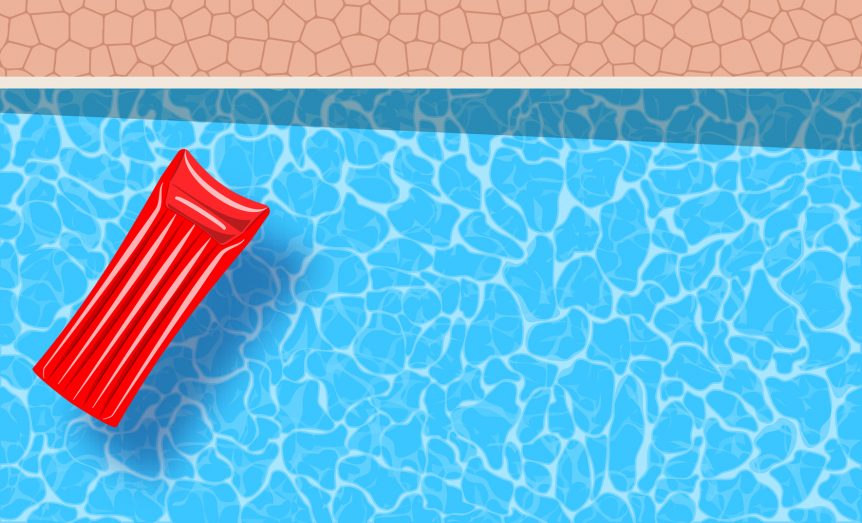While biohazard and trauma cleanup is a specialty service provided by ServiceMaster DRR, we would certainly want to avoid an accident or death in any situation. So, we want to educate our customers of the hidden dangers and unnecessary risks in the summer time while prioritizing safety to prevent these situations from occurring.
As the end of summer is vastly approaching, scorching temperatures are near and we want everyone in the Bay Area to stay aware of the potential problems that these heat waves can bring.
Enjoy the Summer but Be Careful
The end of summer is one of the final chances people will have to enjoy the sun and have fun with family and friends before starting school. But it is also one of the most common times in which heat strokes and accidents occur if you are not careful.
Whether traveling, lounging by the pool, or hitting up the beach, ServiceMaster DRR cannot stress enough the importance of prioritizing safety. Not being mindful of the problems caused by extreme heat can end summer festivities very early as severe illnesses and even death can occur.
Here are some summer safety tips to keep in mind when enjoying the last days of summer.
Safety on the Road and on the Water
• Never allow anyone who has been drinking to drive a boat or car.
• If you had rented a boat, make sure to learn, follow, and practice all safety rules of the open water. Many rental companies will provide basic boating safety as well as a book of rules and orientation before hitting the water.
• Make sure that everyone is always wearing an approved life jacket, no matter how well they can swim.
• Always stay alert to the idea that others may be driving under the influence of alcohol during the holidays. Avoid taking the boat out at night.
• Never take the boat out with less than half of a tank of gas. Regardless of the inconvenience, take the boat out of the water and fill it up.
• Always bring a charged cell phone with you. Consider bringing portable chargers and frequently check in with family and relatives.
• Keep an emergency first-aid kit that includes gloves, band aids, rubbing alcohol, gauze pads, and rolls, gloves, calamine lotion, scissors, and pain reliever.
• Keep an emergency kit in the boat and car at all times that includes a flashlight with fresh batteries, sweaters, shoes, light sticks, tools to change a flat tire, duct tape, and reflective triangles.
• Always tell your friends where you’re going, the route you’re taking, and your expected times of arrival and departure from each place. For both law enforcement and EMTs, this information can make the difference of being able to find you.
• Always keep a GPS with you when traveling.
• In the event of an accident in which nobody can speak clearly, first responders will scan phones in search for a contact to call. Add the word “ICE” to an emergency contact as they know that it means “in case of emergency.”
• Make sure all children traveling with you have a form of ID.
Swimming Safety Tips
• Always keep track of water and weather conditions before going to the beach or pool.
• Stay aware of any undertows or rip tides and never go in the water if you are unsure if it’s safe. Even the strongest swimmers can be taken by powerful currents.
• Never allow a child to go into the water without the supervision of an adult.
• Ensure that all children are wearing Coast Guard-approved life jackets.
• Flotation devices are toys, not protection devices against drowning. They must never be used in lakes or oceans to replace a life jacket.
• Always stay aware of dangerous animals in the water, such as crocodiles, sharks, jellyfish, and alligators.
• Make sure a lifeguard can always see you and to ask them about unsafe swimming areas, warning flags, and any other potential hazards before allowing anyone to go into the water.
• Never leave kids or elderly individuals unattended at the pool or beach. Powerful waves or currents can knock them down or they can slip on pool decks.
Home Safety Tips
• Around 8,900 house fires are caused by grilles and 16,000 people go to the emergency room due to injuries caused by grills, according to the National Fire Protection Association. The number one leading factor in grill fires is not cleaning it with combustible materials at a distance. Always make sure the grill is clean and that it’s not near anything flammable.
• Gas grills are much more dangerous than charcoal grills. Make sure that there are no gas leaks or other damage in the grill or hose before starting it. Also be aware of any insects or small debris interrupting the flow of gas or causing it to flow where it shouldn’t.
• Never leave a hot grill unattended, especially in the presence of children.
• Never move a hot grill as they can fall down and ignite the deck or ground.
• Never allow intoxicated guests operate the grill and stay aware of everyone drinking.
• Always use paper or plastic plates, cups, and utensils outside. Broken glass is a danger to everyone on the property.
• Put colorful stickers on glass doors and screens to avoid any collision.
• Never allow children to ignite or play with fireworks, including sparklers. These items burn at temperatures of 2,000 degrees and can melt metal.
• Always keep a garden hose or two buckets of water as well as a functional fire extinguisher in case of a fire accident.
What to Do in Case of Emergency
As one of the leading companies in fire damage restoration and biohazard cleanup services, our technicians have seen a number of summer tragedies. Failure to follow the safety tips above can result in severe burns, injuries, or even death. It’s crucial to always stay alert during the summer season, especially with high temperatures.
In the event that an accident or emergency occurs, don’t hesitate to call 911 or first responders. The safety of everyone is always considered the top priority. The second step is to address any property damage caused by a fire or biohazards.
ServiceMaster DRR is a professional when it comes to providing biohazard cleanup and fire damage restoration. We are available in San Francisco, CA and the surrounding areas to respond to emergencies.
Available 24/7
Don’t hesitate to give us a call at (800) 439-8833 for an immediate response.

Steve VanDenBerg is the owner of ServiceMaster Disaster Restoration and Recovery. He has over 30 years of experience working within the restoration industry and successfully leading start-ups, turnarounds, acquisitions and mergers, and rapidly growing companies.
Steve earned his BS in Business & Accounting from Calvin University in Grand Rapids, MI and began working for DSI Holdings as their Chief Financial Officer. When Steve began with DSI Holdings, they were running an underperforming ServiceMaster Restore franchise with one location. Steve implemented new policies and procedures for accounting and finance as well as a professional sales plan that increased profits eightfold over his time as the CFO. He was then promoted to President and CEO and in this time, he expanded the company from two locations with $4M in sales to 12 locations and $45M in sales. DSI Holdings became one of the largest disaster restoration companies in the U.S. and helped with major restoration projects throughout the U.S. and around the world.
Steve purchased ServiceMaster DRR in 2015 when the business was in decline. Drawing on his years of experience in turning around struggling ServiceMaster franchises, Steve overhauled our operations, including finance, sales, and marketing, which led to a quick turnaround. Within Steve’s first 24 months, sales increased by 60 percent. Steve also helped greatly improve our operating margins and established a relationship with California’s largest residential insurance company. Under Steve’s leadership, we have become one of the largest disaster restoration providers in California.
Steve has found great success in turning around struggling and stagnant restoration franchises by changing the business model and strategy, greatly increasing sales and profits. Many of the changes he has implemented have even been adopted by the franchisor into their operating model.



